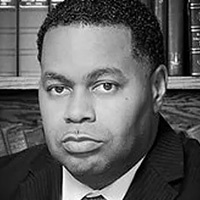Tucker RICO Act Lawyer, Georgia
Sponsored Law Firm
-
 x
x

Click For More Info:
-
The Law Offices of Richard L. Cooper, P.A.
848 Brickell Avenue Suite 800 Miami, FL 33131» view mapDWI/DUI, Drug Trafficking, Felony Nationally Ranked Top 40 Under 40
With Richard L. Cooper you can expect a trusted confidant who will work diligently to fully understand your case and determine a road map to help you regain control of your life.
800-756-2781
Not enough matches for Tucker RICO Act lawyer.
Below are all Tucker Criminal lawyers.
Anton Latasius Rowe
✓ VERIFIEDAnton Rowe specializes in complex litigation and is particularly effective at trial litigation. One client defined Anton Rowe’s trial success in 3 w... (more)
Kirby Clements
✓ VERIFIEDKirby Clements, Jr. is our senior trial attorney. He is admitted to practice in Georgia, New York and the District of Columbia. He is a member of the ... (more)
Zachary Shair
✓ VERIFIEDAs a partner at G Cooper and Associates, Zachary’s practice focuses primarily on complex criminal defense cases and family law. Zachary genuinely ca... (more)
Kristal A. Holmes
Anthony O. Van Johnson
FREE CONSULTATION
CONTACTRobert Rogers Giannini
FREE CONSULTATION
CONTACTFREE CONSULTATION
CONTACT
 Richard L. Cooper Miami, FL
Richard L. Cooper Miami, FL AboutMiami Attorney at Law
AboutMiami Attorney at Law ServicesCriminal Defense
ServicesCriminal Defense





